The Integration and Application Network in 2018
Bill Dennison · | Environmental Report Cards | Science Communication | Applying Science | Learning Science |The Integration and Application Network (IAN) had an eventful and exciting year. We were able to report some really good news in the improvements in the health of Chesapeake Bay and Maryland Coastal Bays with our annual report cards. In addition, the publication of a scientific synthesis paper that IAN staff helped generate was able to reach a broad audience. This paper identified that the nutrient reductions into Chesapeake Bay were leading to ecosystem health improvements. We were able to support the University of Maryland Center for Environmental Science (UMCES) by undertaking an Institutional Assessment and by assisting in the UMCES Environmental Summit. We also helped the Maryland state agencies with their successful inaugural State of the Coast conference.
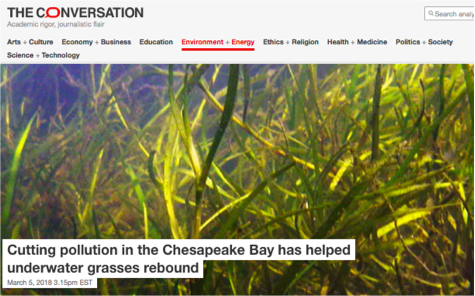
Thriving IAN partnerships
IAN has developed some strong long term partnerships that thrived in 2018. The Healthy Rivers for All partnership with the World Wildlife Fund (WWF) led to report card projects in Zambia and Mongolia. The United States Geological Survey (USGS) partnership on ecological drought led to island workshops in Puerto Rico and Hawaii, as well as the completion of a newsletter series, a synthesis document, and the submission of a scientific publication. Both of these partnerships were highlighted with booths at the annual American Geophysical Union conference, held in Washington, DC. The National Park Service (NPS) partnership in the National Capital Region led to a concerted effort to integrate natural and cultural resources which included a component of the Environment & Society Foundation course in the Marine Environmental Estuarine Science (MEES) program. The Belmont Forum partnership led to IAN staff facilitating the synthesis of four different Collaborative Research Actions in 2018. The Future Earth Coasts partnership led to a Regional Seas workshop that IAN facilitated, and to IAN’s upcoming role in the distributed leadership of Future Earth Coasts.
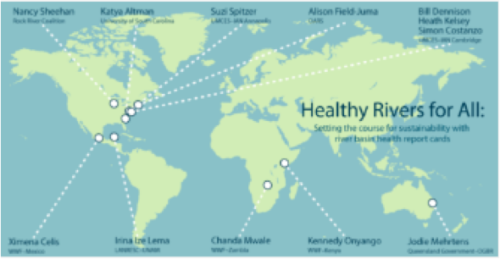
Video production ramping up
IAN’s investment in video hardware and video-oriented Science Communicators has resulted in a proliferation of videos. Short report card documentary videos for the Chesapeake Bay and Tuul River, Mongolia were produced. An oral history video was produced with USGS on island drought in Puerto Rico and the Virgin Islands. A Horn Point graduate student, Melanie Jackson, lent us her beautiful singing voice for a series of music videos that IAN produced. We even sent a couple of the IAN videos to Ricky Arnold, Bill Dennison’s former student, who was in the International Space Station for much of 2018. Weekly uploads of video clips to the IAN Vimeo Moving Image Library are helping build a video library, with over 50 videos available. The IAN YouTube channel now has over 200 videos posted.
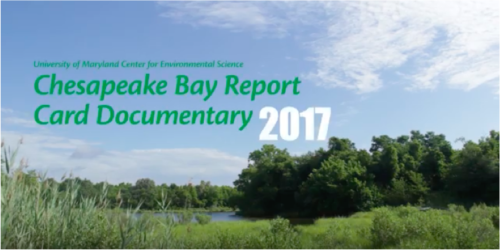
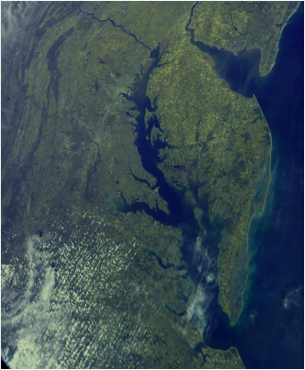
IAN Press continues to grow
IAN Press publications included the NOAA Coral Reef Conservation series of Coral Reef Condition assessments for a) American Samoa, b) Guam, c) Northern Mariana Islands, d) Hawaiian Archipelago, and e) the Pacific Remote Islands, as well as a status report scoring methodology paper. Report cards for Chesapeake Bay, Maryland Coastal Bays and the Tennessee River were posted in 2018. The annual 2016 and 2017 IAN report cards were released in 2018 as well. The Data Interpretation and Synthesis Methods Manual was released as part of the Chesapeake Monitoring Cooperative. The Practitioner’s Guide to Developing River Basin Report Cards book released in 2017 was translated into Mongolian.
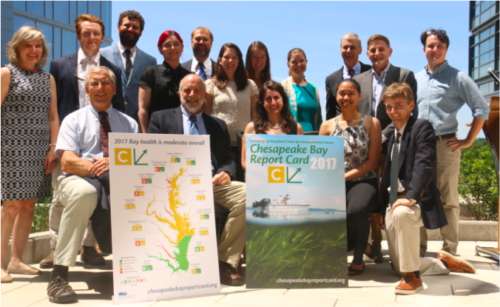
IAN staff changes
IAN acquired two new Science Integrators, Andrew Elmore (part-time) and Katie May Laumann, two new graduate students, Natalie Peyronnin Snider and Dylan Taillie, and three new Science Communication interns, Yesenia Valverde, Kate Petersen and Sky Swanson. Jason Howard also did a brief stint as a Science Integrator in 2018. Transitions in the UMCES @ Chesapeake Bay Program included Howard Weinberg’s retirement, with Zhaoying “Angie” Wei replacing him, and Catherine Krikstan, Andrew Sommerlot, and Aera Hoffman leaving with replacements coming in 2019. IAN staff are initiating a baby boom, with three Science Communicators pregnant in 2018, with babies arriving in a steady sequence. Dottie Samonisky retired at the end of 2018, with Jennifer Clapper stepping in for 2019. Simon Costanzo moved to Brisbane, Australia where he continues to support IAN with ongoing projects in Australia, China, Mongolia, and India.
IAN’s expanding impact
Domestic travel:
IAN staff traveled to Boston, MA (twice) for science communication training, Concord, MA for River report card training, Arizona for Verde River report card project, Seattle, WA for an American Fisheries Society and The Wildlife Society synthesis workshop, Sandusky, OH (twice) for the Lake Erie report card project, Chattanooga, TN for Tennessee River report card project, Florida for Everglades report card project, Kansas City, MO for Blue River report card project, Hawaii and Puerto Rico for island drought workshops, South Carolina for an oceans and human health project, New York City to finalize New York Harbor education project, Corpus Christi for Texas Coast report card project, California for the 2018 River Rally, New Hampshire for a climate preparedness conference, Galveston to attend International Science of Team Science conference.
International travel:
IAN staff traveled to Zambia for a Kafue River report card project, Mongolia (twice) for the Tuul River report card project, Marrakech for International Waters Conference, Sydney, Australia for International Riversymposium, and Brisbane, Australia for the Healthy Waterways Journey project, Shanghai for a Future Earth Coasts steering committee meeting, Utrecht, Holland to attend International Sunbelt Social Network Conference, Xian, China to discuss report card approaches for Chinese rivers and watersheds, Cork, Ireland for Future Earth Coasts workshop, Brasilia, Brazil for the World Water Forum, Bangkok, Thailand for Environmental Management for Enclosed Marginal Seas conference, New Delhi, India to review Integrated Coastal Zone Management plans, Toronto, Canada for science communication and report card training.
The IAN Annapolis and Cambridge offices were fun places to work in 2018. Game nights, open houses, retreats, and parties allowed staff to relax together. Even the intense travel sessions were fun because of the group dynamics. IAN partnerships provide staff with some fantastic colleagues. The good news about the improving health of Chesapeake and Maryland Coastal Bays provides incentives for the projects IAN is engaged elsewhere. With some exciting projects on the horizon as well as the interesting projects underway, 2019 promises to be another banner year for the Integration and Application Network.
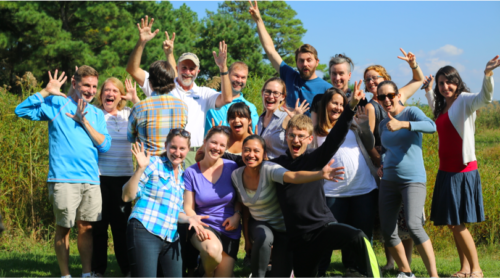
About the author
Bill Dennison

Dr. Bill Dennison is a Professor of Marine Science and Vice President for Science Application at the University of Maryland Center for Environmental Science.